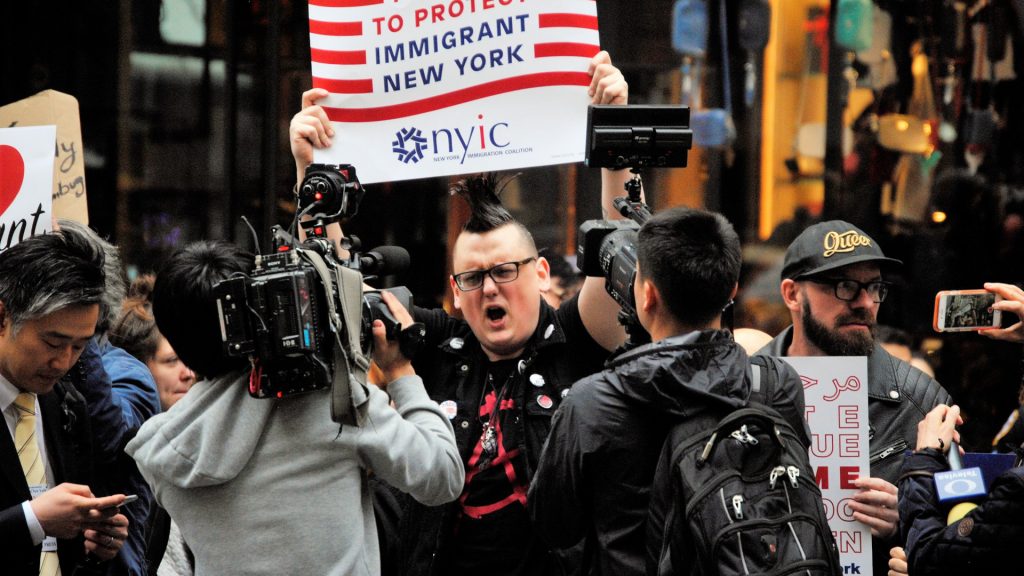
How much does video production cost? Our 1-2-3 costing approach is a terrific way to start with immediate “ballpark” numbers which can be developed to produce detailed estimates.
Video production costs fall into three areas. Sometimes, the work we are asked to do falls into only one or two areas, especially if we are working with a production team:
- Planning and rehearsal
- Filming content
- Editing and post production
Our 1-2-3 method is a great way to model other video formats for your project too. For instance, converting slideshows into videos with special effects and voiceover can cost a third the price of conventional filming. Understanding your objective helps us guide you to a cost effective alternative.
Browse through the headers below to see our headline price rates. Each header can be opened for further commentary. If you have a broad outline of your project, please contact us or use the WhatsApp button on the bottom of your screen with an outline of your project and we will be glad to plug in numbers and get straight back to you.
How to use this page
Tap or click the grey headers to read more about video production costs.
DIY or professional help?
Do you need professional video production?
If you can communicate your message with your mobile phone camera and freely available social media facilities, you do not need these services.
Hybrid: supported in-house production
You use social media already and now you have reached the stage where you want to establish an in-house studio. This is a natural evolution, and it means acquiring pro-sumer equipment. Equipment selection and operation is often a barrier to progress. We regularly advise, plan, deploy, and train/support businesses of all descriptions for in-house voice and video production.
We are a Microsoft Cloud Partner with Cisco CCNA networking experience so we bring more than cameras to the table – a lot of our daily work includes site/remote support, computer networking, broadband management and communications for video production teams and businesses.
Project management and production
Professional video production is for situations where output requires professionally presented content. Professional help might call for staging, lighting and high fidelity synchronised audio which meets regulatory broadcast standards. Usually, professional video production is called for to project or protect market position reputational standing. We help:
- large organizations
- small/home businesses
- CIC (community interest companies)
We operate as a freelance contractor and we work directly with clients. We also work with professional crews up to and including BBC for larger productions where targeted skills or equipment are needed.
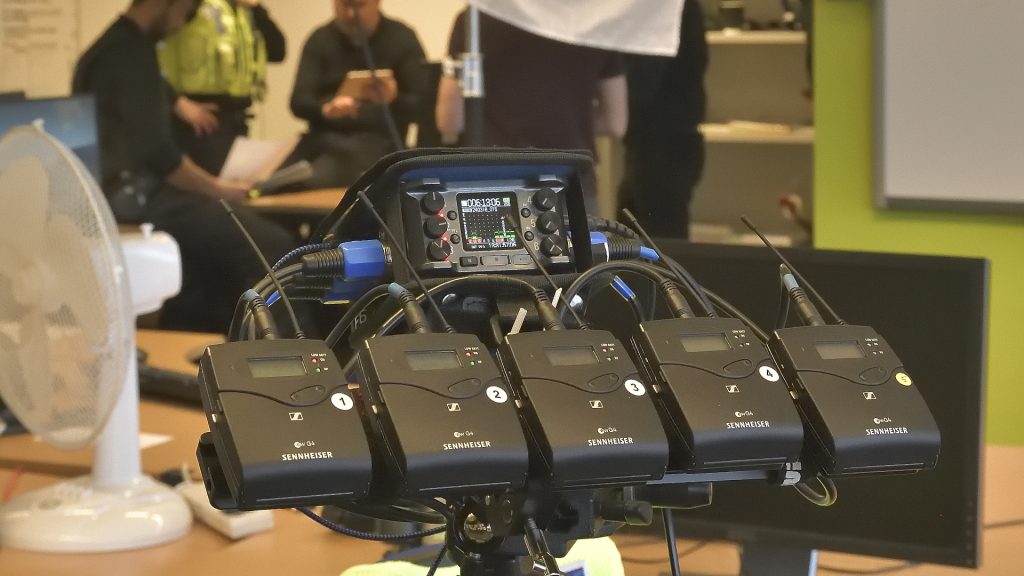
1. Project Planning from £350/day
Know Your Client
Projects work better when suppliers understand customers and their situation. The IT sector is not regulated (apart from GDPR) like financial, legal, and other commercial sectors. Even so IT professionals are most productive with even the smallest matters when they understand how you and your IT works. KYC is an important starting point before cameras roll.
Knowing what your business does, if/how you already distribute media, what kind of computer systems you rely on for communications and shared storage, in-house audio/video editing software, broadband capabilities for file transfer, and most importantly meeting your staff to build trust – all these are among intangibles that help us deliver the right services.
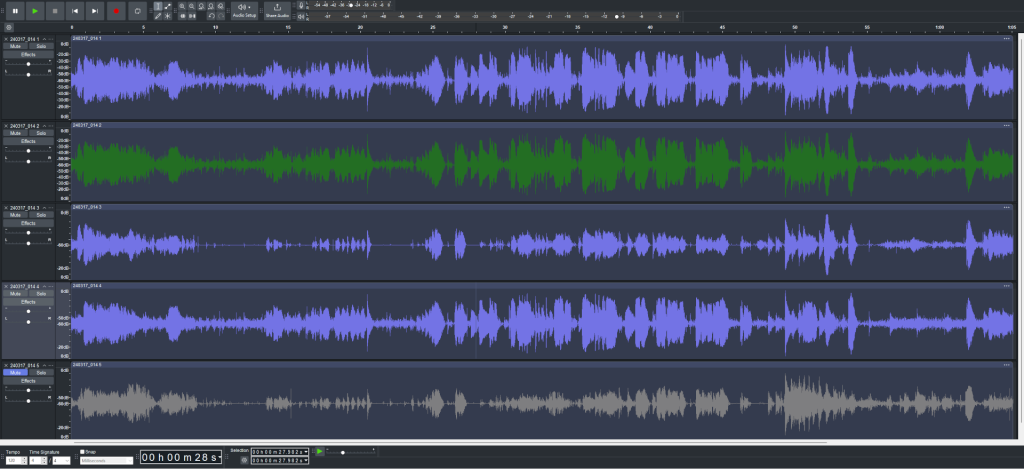
Planning and preparation
At this stage we advise, consult, survey locations, etc. This might include tailored advice about scripting or technical considerations like frame rates and sound sampling and how content is to be distributed.
Meanwhile, we organize coaching where a client’s direct participation is planned. This incudes freely available resources to help develop skills like scripting, storyboards, voice technique, presentation, wardrobe, and more. This kind of preparation does not need our direct input and improved competencies help to reduce your costs.
Mistakes made in video production are usually costly so it is important to anticipate and plan for problems. This might mean planning for cabling needs, and whether backup equipment is necessary. It might also be important to plan considerations like video frame rates and audio sampling. The trick is to keep it simple (KISS) to improve the chances of keeping a project within budget.
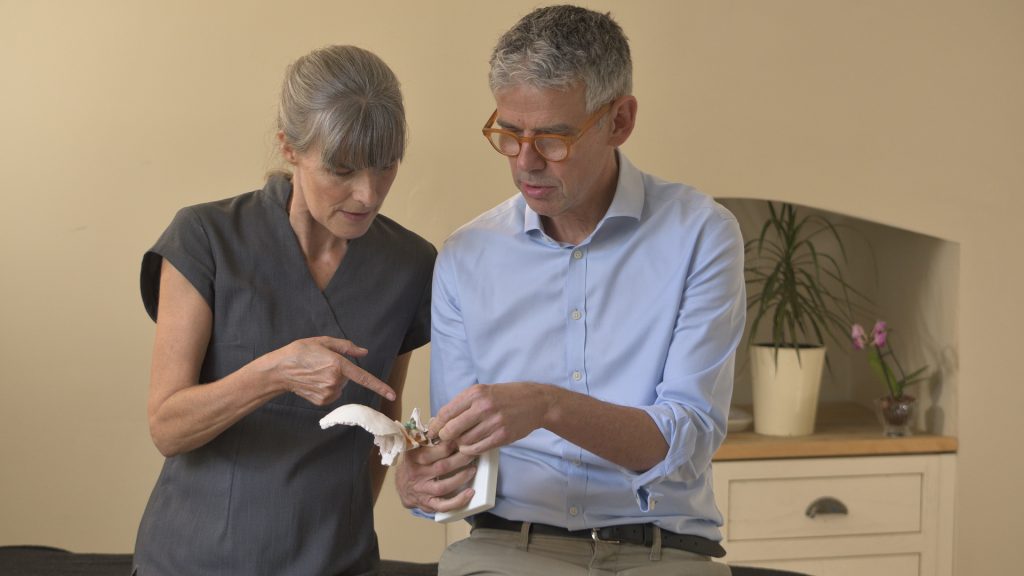
2. Filming – from £450/day, £80/hr recording time
Staging and filming content
We charge a set daily rate for attendance. This takes account of the equipment we use and the time it takes us to test, load, transport, assemble and then “de-rig” equipment and return to studio. This does not include location costs, actors, extra technicians or other exigencies.
Additionally we charge for the time used to execute recordings on location. Typically, content can be recorded within 2-3 hours where content and execution has been well prepared.
Usually, a “take” lasts as little as 5 minutes or less. This is by design: sometimes a second “take” or “pick up” can be executed without re-starting equipment. Takes are then compiled into its larger whole in editing.
Videographers often charge for half-day or full-day rates. However, it takes a day to prepare and configure equipment whether we shoot for 30 minutes or 5 hours during a day.
This flat rate approach compares competitively against hired-in equipment. Also, charging separately for filming time incentivizes clients to prepare thoroughly so that production can be executed in minimum time (i.e. cost) and the experience can actually be fun for presenters/actors. This is important.
Remember, cameras reveal all, and as actors know too well, the more takes one has to shoot again, the harder it is to get a good take. Getting comfortable with cameras in your face, a sound engineer who can hear every breath you take, distracting stage lighting, and expert directors/producers standing by looking bored is no easy proposition. Practice makes perfect.
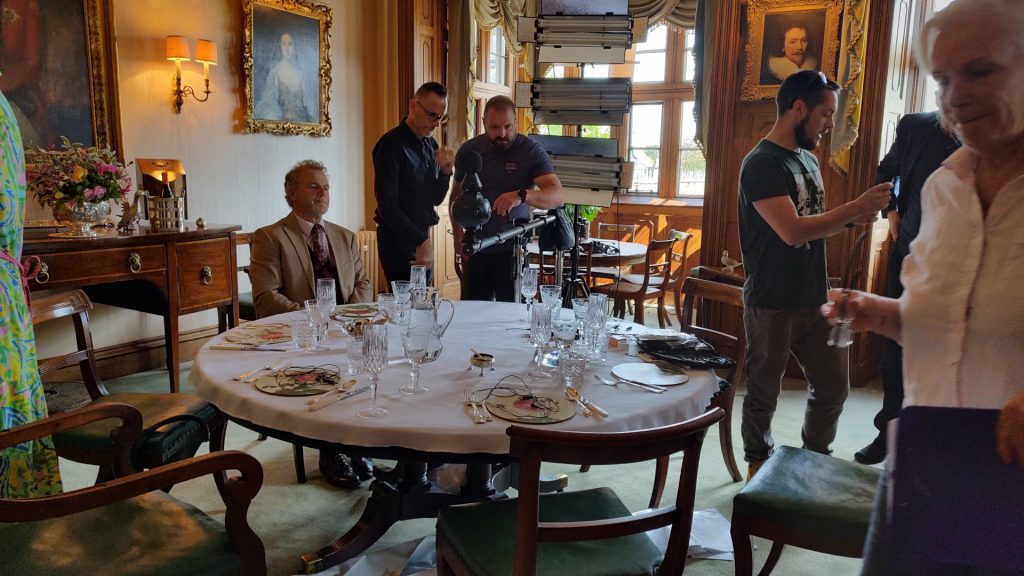
3. Post production – from £250/day
Post production
Post production is the time taken to edit audio/video footage and assemble it into a final timeline for production and delivery. It is time consuming. Artistic video production which includes extensive special effects and high fidelity audio can take up to 12 hours for every minute of finished video.
In fact, post production usually dictates what kind of video production is affordable. Some video production companies estimate costs according to the duration of a video.
We often use this approach to illustrate what a proposed filming format translates into. It is simpler than our 1-2-3 approach and works very well when we know how long the finished content will be and preparation/staging is regimented or “templated”. However, we like to use this costing approach to compare the effect of one filming method to another to help clients understand the effect of choices. We like the 1-2-3 approach because at all stages it is obvious that the more preparation clients invest themselves, the lower our costs will be. Too often we have arrived for filming and the client, who is also the star of the show, asks what they are to say on camera.
Content like training videos can usually be turned around within days when minimal effects are required. Some content, like professional music video, can take weeks. Professional vloggers often need 2-4 days to turn around a “casual” video that depends on research, scripts and staged presentation. Such a video might “look” informal, but it doesn’t happen by chance and depends on studio equipment and at least one “film crew”.
Some clients, and also associate videographers and sound engineers we work with, take custody of adio/video footage to edit themselves in-house. This is common industry practice. So, we can produce content for you to edit yourself. Also, we can operate with teams of specialists to economically provide audio or video content for post production elsewhere.
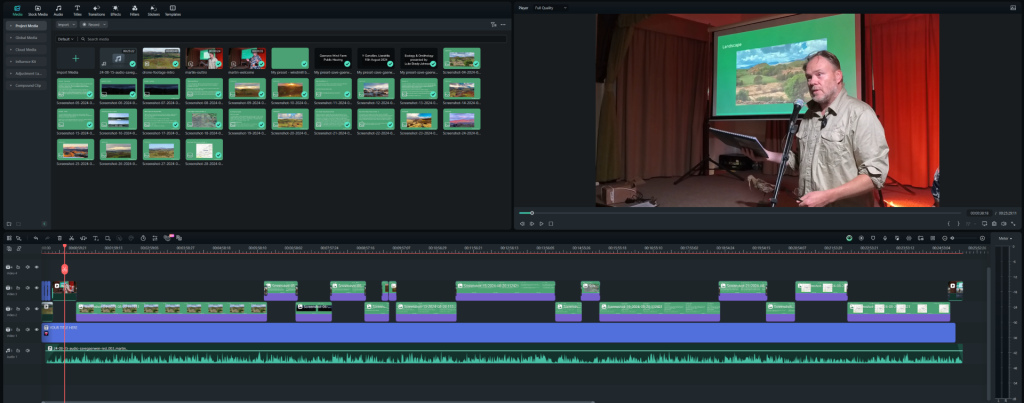
4. Other costs
Location, travel, talent, etc.
Some services not included in this 1-2-3 method impact costs. Usually, these kinds of services come into the equation for content that is beyond the scope of most business’ needs. Consumables feature in all our chargeable work, and other considerations can include:
- consumables – e.g. batteries, SD cards, USB sticks, zip ties, gaffer tape
- travel and accomodation costs
- additional engineering/artistic direction/labour
- scripting services
- agency talent/voiceover
- location costs
- specialised equipment hire
- image rights and music licensing
- social media/distribution configuration
Sometimes we need one or two more engineers on site, and sometimes a project calls for agency talent and location hire. We developed this approach so that if someone phoned us to ask how much it costs to make a video, we could give them answers immediately. Even so, this is an indicator. The better the information we have, the more accurate we can be. Sometimes, that takes a while. Hopefully, the method helps you to start navigating options to tailor costs to suit your objective.